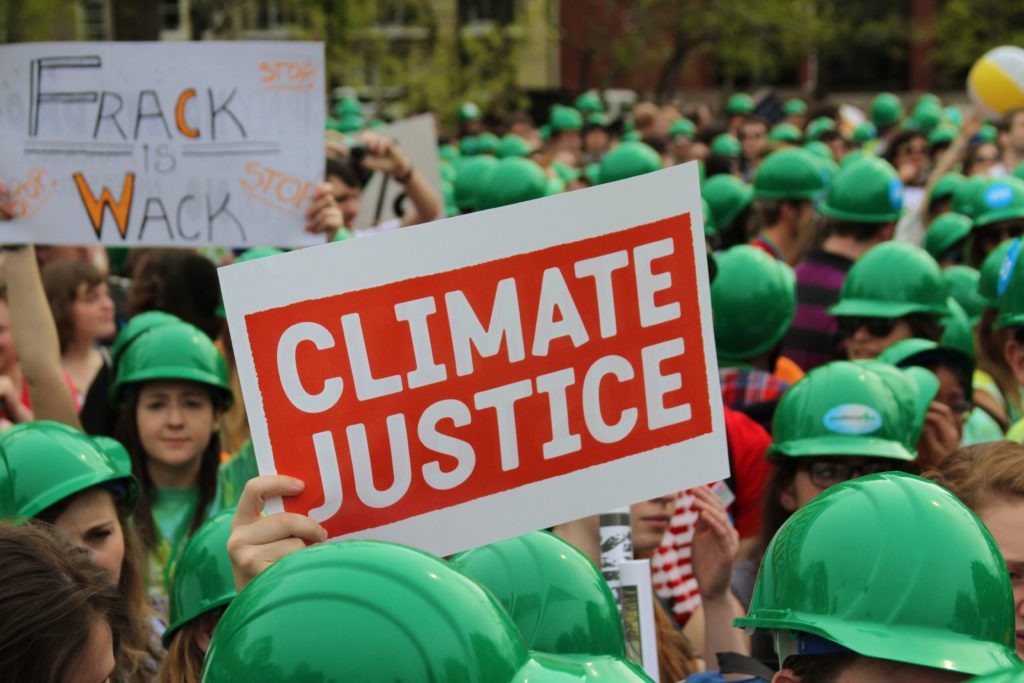Preserving Civic Space for Climate Activists
PUBLISHED: JUNE 2020
This briefer, presented by ICNL and ECNL, outlines some of the common legal and extralegal measures used to target civil society actors working on climate justice. Many of these measures violate international and regional law, and threaten civil society’s ability to function and find solutions to urgent global environmental challenges. Surveillance, freedom of expression, and digital threats to climate activists may increase as a result of COVID-19, as states enact emergency measures that further enhance their powers. Similarly, restrictions on assembly rights may outlast the pandemic, and states must be careful to ensure that climate, environmental, and other forms of activism remain fully protected in line with international law

The rise of a global climate movement has been accompanied by a crackdown on civic space for climate activists worldwide. As climate strikes, protests, and mass mobilization become more widespread, many governments have teamed up with private actors to quell climate activism. This suppression has taken many forms, from laws criminalizing legitimate expression and assembly, to attempts to paint activists as “eco-terrorists,” to civil lawsuits and physical persecution. Here is an overview of our analysis:
THREATS TO ASSEMBLY
- Protest Bans and Restrictions: Governments have implemented assembly bans for climate strikes and protests, including banning specific protests and limiting or denying requests for climate-related assemblies.
- Criminalization of Non-violent Protest Actions: Governments have arrested scores of climate protesters engaged in peaceful protest actions, and passed laws to criminalize formerly legal protest methods.
- Critical Infrastructure Laws: Laws specifically targeting activists protesting around “critical infrastructure” have proliferated, particularly in the US. These laws create new felony offenses, typically for trespass or inhibiting construction, or assisting someone in either of those offenses.
THREATS TO ASSOCIATION, EXPRESSION, AND THE RIGHT TO INFORMATION
- Operation Barriers: Governments have been threatening environmental groups’ right to association through a number of measures. These include applying new procedural and burdensome operational requirements, withholding benefits and access to foreign funding, and dissolving organizations altogether.
- Surveillance and Infiltration: Governments have violated the privacy rights of climate activists and organizations through surveillance. In addition to government-sponsored surveillance, private security firms also spy on climate activists.
- Free Expression and Right to Information Restrictions: Governments have limited coverage of activism at extractive industry sites, and threatened to outlaw boycott campaigns aimed at companies contributing to climate change. Such measures chill speech, suppress dissent, and discourage whistleblowers and concerned citizens from engaging in climate advocacy.
THREATS TO PUBLIC PARTICIPATION
- Strategic Lawsuits against Public Participation: SLAPPs have been levied against climate activists and environmental organizations. These suits often charge activists under a range of typically baseless claims, including allegations of defamation, anti-racketeering, interfering with business, and conspiracy.
- Curtailed Participation in International Climate Conferences: Civil society has faced various barriers to access at the UN Climate Change Conference of Parties, including bureaucratic hurdles and increased surveillance by host governments. The limitations and harassment faced by civil society in international climate negotiations stand in stark contrast to the direct role afforded to the private sector.
- Limiting Public Input in Large Projects: Where public participation has been incorporated through environmental impact assessments and other input processes, governments have limited or fast-tracked approval procedures to eliminate citizen participation.
OTHER FORMS OF HARASSMENT
- Physical Attacks: Climate protesters regularly face violence and abuse from law enforcement officials, while environmental and land defenders are routinely murdered and attacked.
- Stigmatization and Terrorist Labels: Governments and industry actors often vilify climate activists, labeling them as “foreign agents,” “communists,” “anti-development,” “anti-national,” “criminal,” and, oftentimes, “terrorists.”
- Hate Speech and Trolling: Climate activists have to contend with online hate speech and verbal abuse, including misogynistic or racist commentary, often from far-right agitators on Facebook and Twitter. Many activists end up self-censoring, out of fear for their personal security.
Climate change is a critical public policy issue – ever more so in the COVID-19 era – in which citizen engagement and participation is central, and should be encouraged. We urge all actors to respect people’s rights to protest, to express themselves, and to participate in non-violent actions around climate.
Download the full briefer here and download the infographic here.